Review: Relatos salvajes (ENG/ESP):
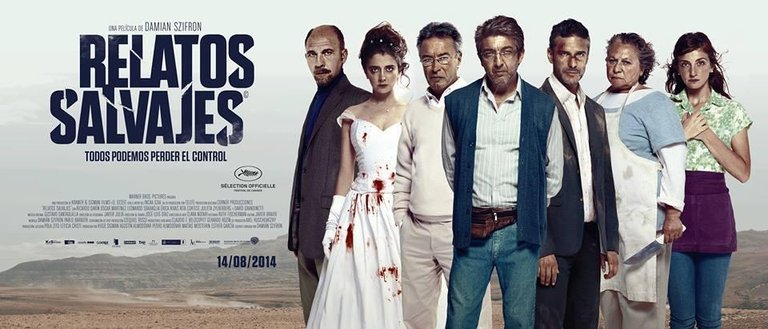
Relatos Salvajes: es una película de humor negro hispano-argentina, dirigida por Damián Szifron. Es una antología compuesta por seis historias autoconclusivas unidas por su temática de violencia. Los personajes atraviesan diferentes situaciones de la vida cotidiana y el destino los conduce a un final violento y absurdo. El filme está dividido en seis cortometrajes.
Relatos Salvajes (Wild Tales): is a Spanish-Argentine film of black humor, directed by Damián Szifron. It is an anthology composed of six self-conclusive histories united by their theme of violence. The characters go through different situations of everyday life and fate leads them to a violent and absurd ending. The film is divided into six short films.
“Pasternak”:
Cuenta la historia de Isabel, una modelo, y Salgado, un crítico musical que coinciden en un avión y pronto descubren que ambos tienen un conocido en común: Gabriel Pasternak. Este resulta ser el exnovio de la modelo y un antiguo estudiante de música clásica donde trabajaba Salgado, quien destruyó su tesis durante la presentación. Al escuchar la conversación, una mujer, la profesora Leguizamón, los interrumpe y dice que ella había sido maestra de Pasternak. Poco a poco se revela que todos los pasajeros del avión han tenido algo que ver con el pasado de Pasternak y que él es el comisario de a bordo de ese avión. De pronto, el avión comienza a descender abruptamente y los pasajeros sospechan que todo forma parte de un plan ideado por el hombre para vengarse de ellos por el daño que le hicieron en el pasado. El final es abrupto y “salvaje”, propio de la mentalidad de un loco.
Tells the history of Isabel, a model, and Salgado, a music critic who meet on a plane and soon discover that they have an acquaintance in common: Gabriel Pasternak. This turns out to be the model's ex-boyfriend and a former classical music student where Salgado worked, who destroyed his thesis during the presentation. Overhearing the conversation, a woman, Professor Leguizamón, interrupts them and says that she had been Pasternak's teacher. Gradually it is revealed that all the passengers on the plane have had something to do with Pasternak's past and that he is the air marshal on board the plane. Suddenly, the plane begins to descend abruptly and the passengers suspect that it is all part of a plan devised by the man to take revenge on them for the harm done to him in the past. The ending is abrupt and "wild", typical of the mentality of a madman.
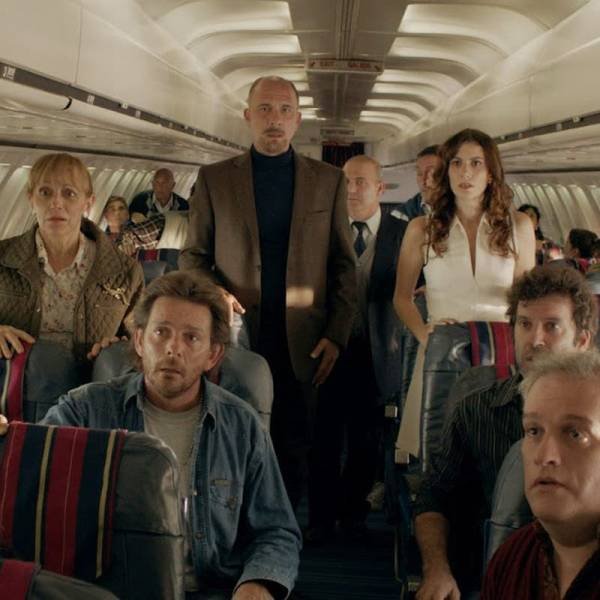
“Las ratas/The Rats":
“Las ratas”: es la historia de una camarera que descubre que uno de los clientes que se acaba de sentar en una mesa, un político llamado Cuenca, es el hombre que llevó a la ruina a su padre y, por lo tanto, a su suicidio. Se lo cuenta a la cocinera, mujer con pasado turbio, y esta le sugiere echar matarratas en su comida y, aunque la camarera se niega, al final la cocinera lleva a cabo su plan macabro.
"The Rats": is the history of a waitress who discovers that one of the customers who has just sat at a table, a politician named Cuenca, is the man who led to the ruin of her father and, therefore, to his suicide. She tells the cook, a woman with a shady past, and the cook suggests that she put rat poison in her food and, although the waitress refuses, in the end the cook carries out her macabre plan.
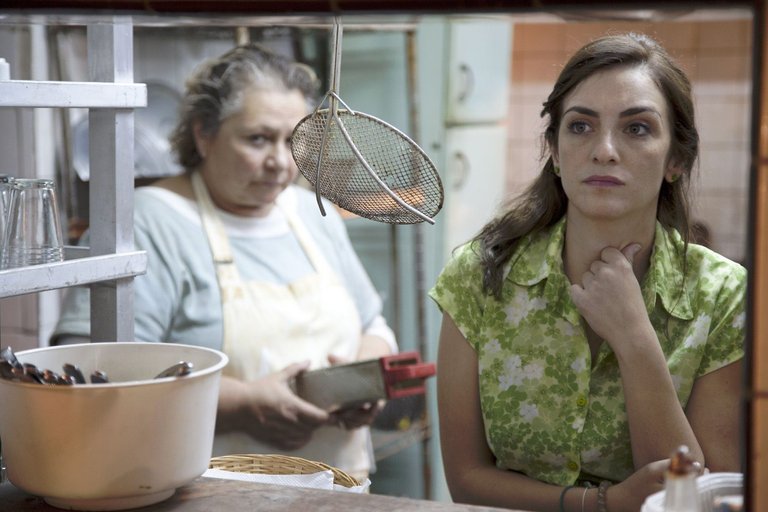
“El más fuerte/The strongest":
“El más fuerte”: la historia expone la discusión entre dos conductores. Uno representa el poder, Diego, hombre adinerado; y el otro la carencia, Mario que va más lento que él e impide su adelantamiento. Tras el encuentro de ambos en una carretera solitaria, la historia desemboca en un violento final.
"The strongest": the history exposes the discussion between two drivers. One represents power, Diego, a wealthy man; the other represents lack, Mario, who is slower than him and prevents him from overtaking. After the two meet on a lonely road, the history leads to a violent ending.
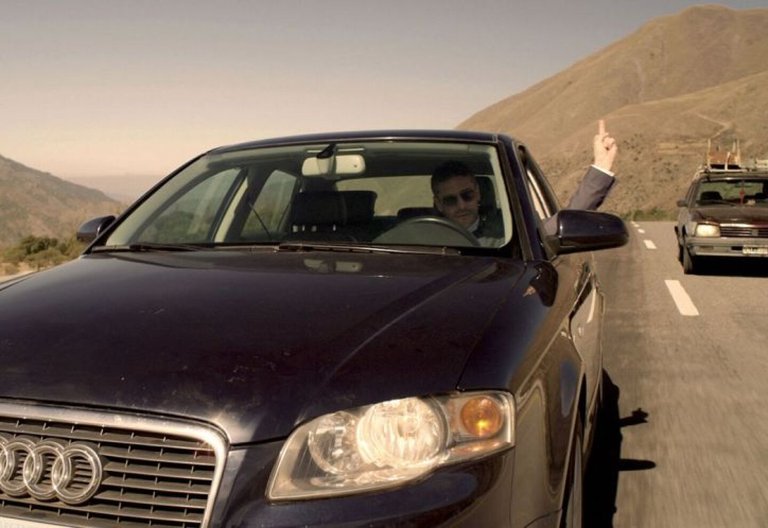
“Bombita”:
“Bombita”: la cuarta historia relata la vida de un ingeniero experto en explosivos indignado con la sociedad y sus reglas. Un día tiene un altercado con un trabajador de la compañía de grúas, después de que retiraran su coche por estar supuestamente mal estacionado, que lo obliga a pagar la multa. Cuando recupera su coche va a su casa para llegar a tiempo al cumpleaños de su hija, pero queda atrapado en un atasco. Este acontecimiento destroza su matrimonio y termina con su trabajo. Finalmente, el protagonista planea una cruel venganza contra la empresa de grúas y la intendencia.
"Bombita": the fourth history tells the life of an explosives expert engineer outraged with society and its rules. One day he has an altercation with a tow truck company worker, after his car is removed for allegedly being parked incorrectly, forcing him to pay the fine. When he gets his car back he goes home to get to his daughter's birthday party on time, but gets stuck in a traffic jam. This event wrecks his marriage and ends his job. Finally, the protagonist plots a cruel revenge against the towing company and the quartermaster's office.
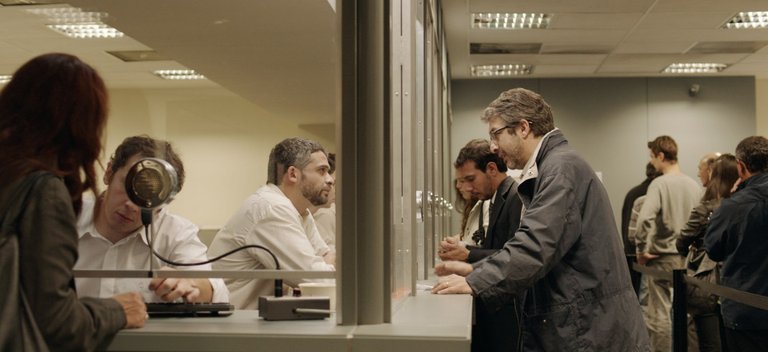
“La propuesta/The Proposal":
“La propuesta”: relata la historia de Santiago, hijo de un matrimonio adinerado, que una noche atropella a una mujer embarazada y se da a la fuga. Sus padres intentan tapar lo sucedido y sobornan al jardinero de su casa para que se declare culpable a cambio de dinero. Este acepta pero todo sale mal y son descubiertos. Al final, el padre de Santiago es chantajeado por su propio abogado y por el fiscal que lleva el caso.
"The Proposal": tells the history of Santiago, son of a wealthy couple, who one night runs over a pregnant woman and runs away. His parents try to cover up what happened and bribe their gardener to plead guilty in exchange for money. He accepts but everything goes wrong and they are discovered. In the end, Santiago's father is blackmailed by his own lawyer and by the prosecutor handling the case.

“Hasta que la muerte nos separe/Until death do us part":
“Hasta que la muerte nos separe”: la historia transcurre durante el banquete de la boda de Romina y Ariel. En la fiesta la novia se entera de la infidelidad de su marido con una compañera de trabajo, que está allí presente. A partir de ese momento, la joven lleva a cabo una venganza atroz: decide mantener relaciones sexuales con un empleado y Ariel los pilla en mitad del acto. Esto desencadena una serie de sucesos que convierten la boda en un campo de batalla.
"Until death do us part": the history takes place during the wedding banquet of Romina and Ariel. At the party, the bride learns of her husband's infidelity with a co-worker, who is there. From that moment on, the young woman carries out an atrocious revenge: she decides to have sex with an employee and Ariel catches them in the middle of the act. This triggers a series of events that turn the wedding into a battlefield.
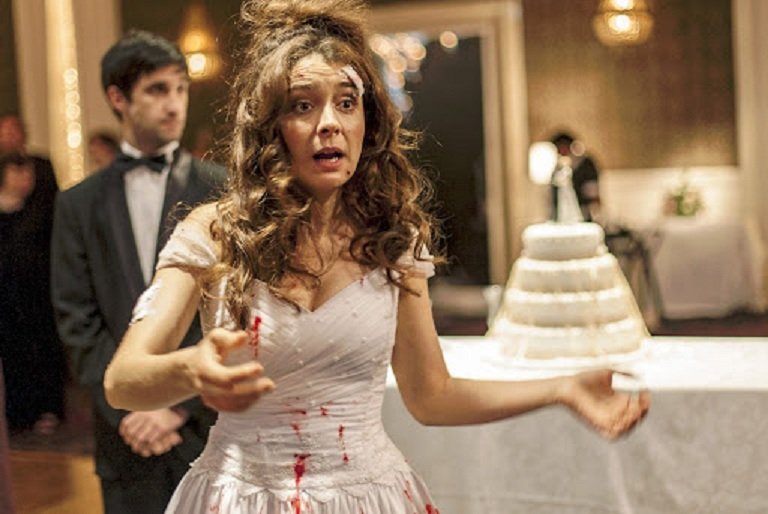
Opinión/Opinion:
Cada uno de los relatos nos muestra que un simple acontecimiento puede terminar en un completo desastre y que el ser humano es tan salvaje como cualquier animal, sea cual sea su clase social, al enfrentarse ante situaciones injustas o abusivas.
Each of the stories shows us that a simple event can end in a complete disaster and that human beings are as savage as any animal, whatever their social class, when faced with unjust or abusive situations.
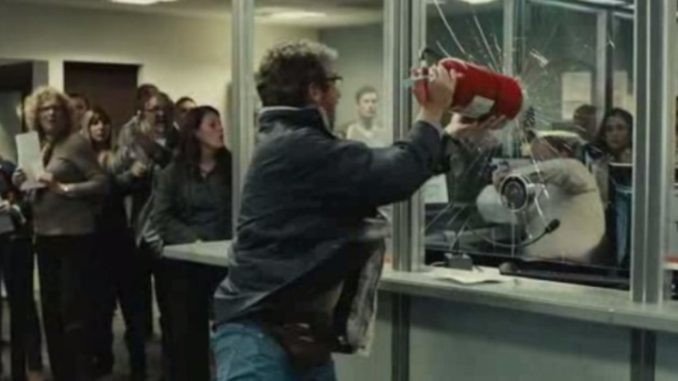
Créditos/Credits:
Créditos: Los detalles del film los saqué de https://es.wikipedia.org/wiki/Relatos_salvajes. Además, utilicé el traductor https://www.deepl.com/es/translator
Credits: I obtained the premiere information from https://es.wikipedia.org/wiki/Relatos_salvajes. I used the translator https://www.deepl.com/es/translator.
Congratulations @eugemaradona! You have completed the following achievement on the Hive blockchain And have been rewarded with New badge(s)
Your next target is to reach 3000 upvotes.
You can view your badges on your board and compare yourself to others in the Ranking
If you no longer want to receive notifications, reply to this comment with the word
STOP